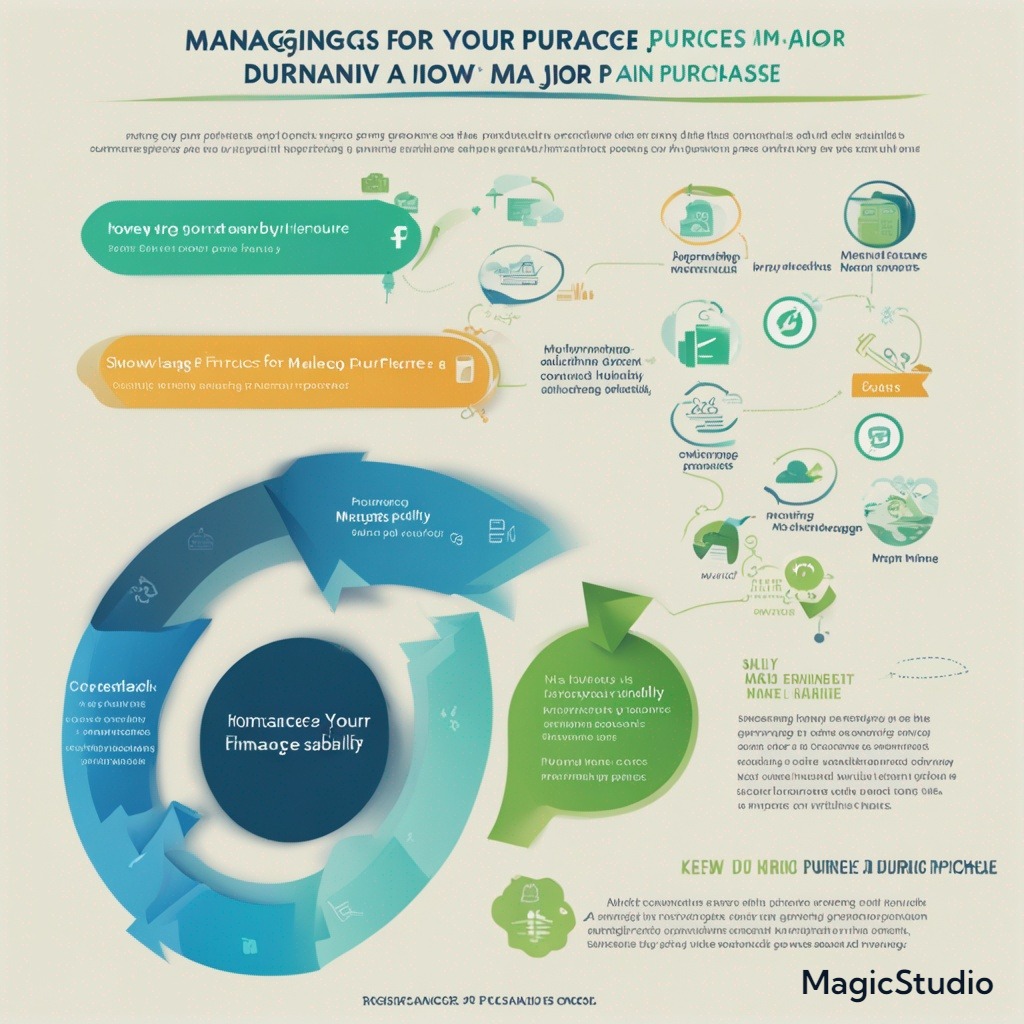Making a major purchase—whether it’s a home, car, or expensive electronics—can be both exciting and daunting. It often involves significant financial decisions that can impact your budget and financial health for years to come. To ensure that you make informed choices, it’s essential to manage your finances effectively during this process. This guide will provide valuable strategies to help you navigate your finances during a major purchase, ensuring you achieve your goals without compromising your financial stability.
Understanding the Importance of Financial Management
Managing your finances during a major purchase is critical for several reasons:
- Avoiding Debt: Major purchases often require loans, and poor financial management can lead to excessive debt.
- Maintaining Budgeting Discipline: It’s easy to overspend during the excitement of a significant purchase. Proper management helps keep you on track.
- Long-term Financial Health: Ensuring you make a purchase within your means will help safeguard your future financial security.
Steps to Effectively Manage Your Finances During a Major Purchase
1. Set a Realistic Budget
Before making any purchase, it’s crucial to establish a clear and realistic budget. Here’s how:
- Assess Your Finances: Review your current financial situation, including income, expenses, and savings. Determine how much you can comfortably allocate to the purchase.
- Include All Costs: Don’t just consider the purchase price. Factor in additional costs such as taxes, insurance, maintenance, and any financing fees.
- Stick to Your Budget: Once you set a budget, commit to it. Avoid the temptation to stretch your budget for additional features or upgrades.
2. Research and Compare Options
Knowledge is power when it comes to major purchases. Conduct thorough research:
- Understand Your Needs: Clearly define what you need versus what you want. This will help narrow your choices and avoid unnecessary expenses.
- Compare Prices: Shop around and compare prices from different vendors or sellers. Use online platforms to find the best deals and ensure you’re getting value for your money.
- Read Reviews: Look at customer reviews and expert opinions to gauge the quality and performance of the products or services you are considering.
3. Evaluate Financing Options
If your major purchase requires financing, explore your options carefully:
- Understand Your Credit: Check your credit score and report before applying for loans. A higher credit score can lead to better interest rates and loan terms.
- Explore Different Lenders: Shop around for loans from banks, credit unions, and online lenders. Compare interest rates, terms, and fees.
- Consider Pre-Approval: Getting pre-approved for a loan can give you a clearer picture of your budget and improve your negotiating position with sellers.
4. Create a Savings Plan
If you don’t need to make an immediate purchase, consider saving for it:
- Set a Savings Goal: Determine how much you need to save and set a timeline for achieving this goal. Break it down into manageable monthly contributions.
- Open a Separate Savings Account: Consider setting up a dedicated savings account for your major purchase. This can help you keep track of your progress and resist the urge to dip into these funds for other expenses.
- Automate Your Savings: Set up automatic transfers to your savings account to ensure you’re consistently saving toward your goal.
5. Consult a Financial Advisor
For substantial purchases, consulting a financial advisor can provide valuable insights:
- Expert Guidance: A financial advisor can help you analyze your financial situation and offer tailored advice based on your goals and needs.
- Long-Term Impact: They can help you understand how the purchase will impact your overall financial health and future plans.
6. Negotiate Wisely
When you’re ready to make the purchase, don’t shy away from negotiation:
- Know the Market Value: Be informed about the market value of the item you’re purchasing, so you can negotiate effectively.
- Be Confident: Approach negotiations with confidence, and don’t be afraid to walk away if the deal doesn’t meet your expectations or budget.
- Consider Timing: Certain times of the year, such as end-of-year sales or holiday promotions, can provide opportunities for better deals.
7. Review Your Purchase Post-Transaction
After the purchase, take the time to review the transaction:
- Reflect on Your Decision: Assess whether the purchase met your needs and expectations. This reflection can inform your future buying decisions.
- Adjust Your Budget: Update your budget to reflect the new expense and adjust your savings goals if necessary.
- Monitor Ongoing Costs: Keep track of any ongoing costs associated with the purchase, such as maintenance, insurance, or monthly payments, to ensure you remain within your budget.
